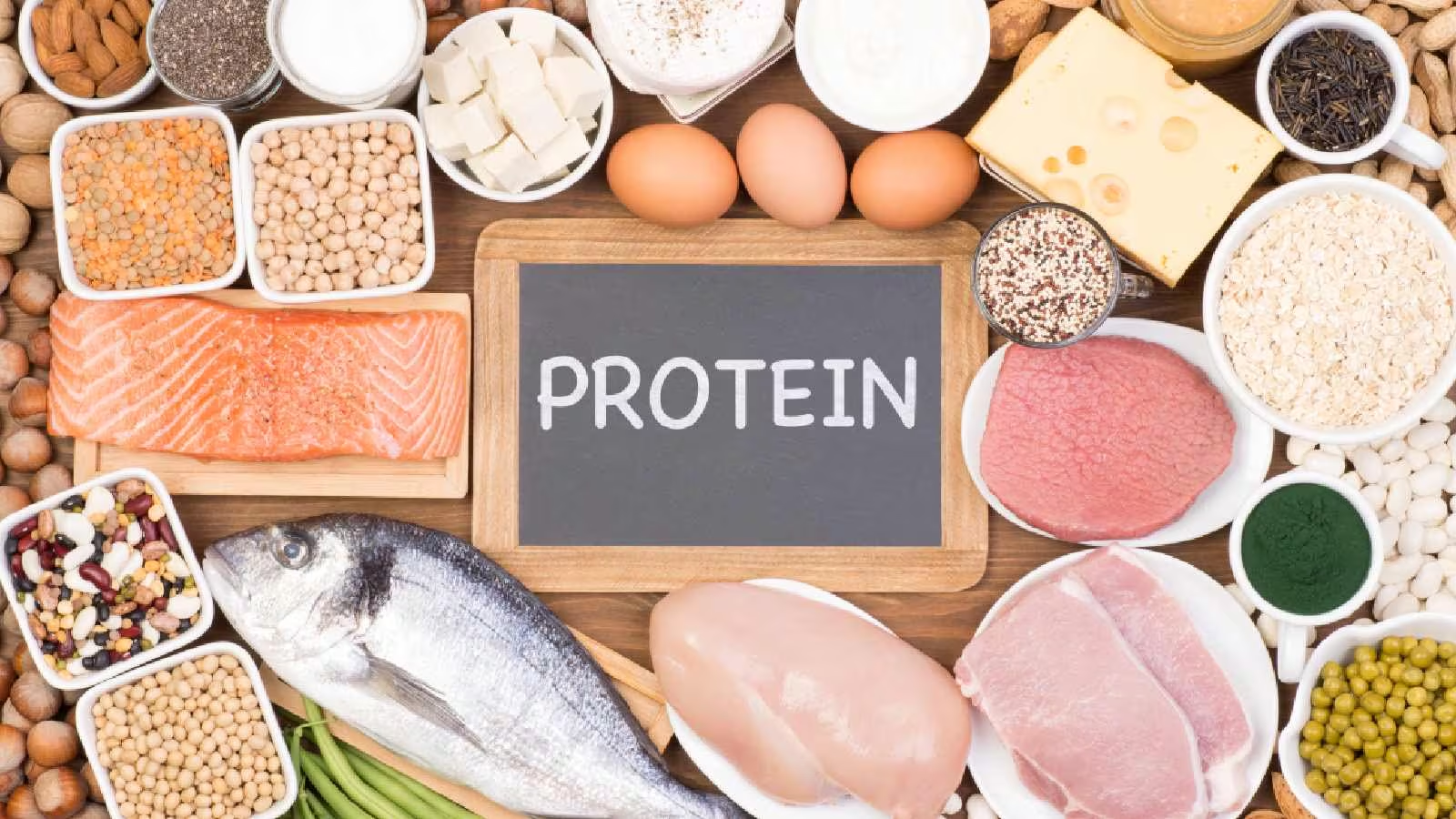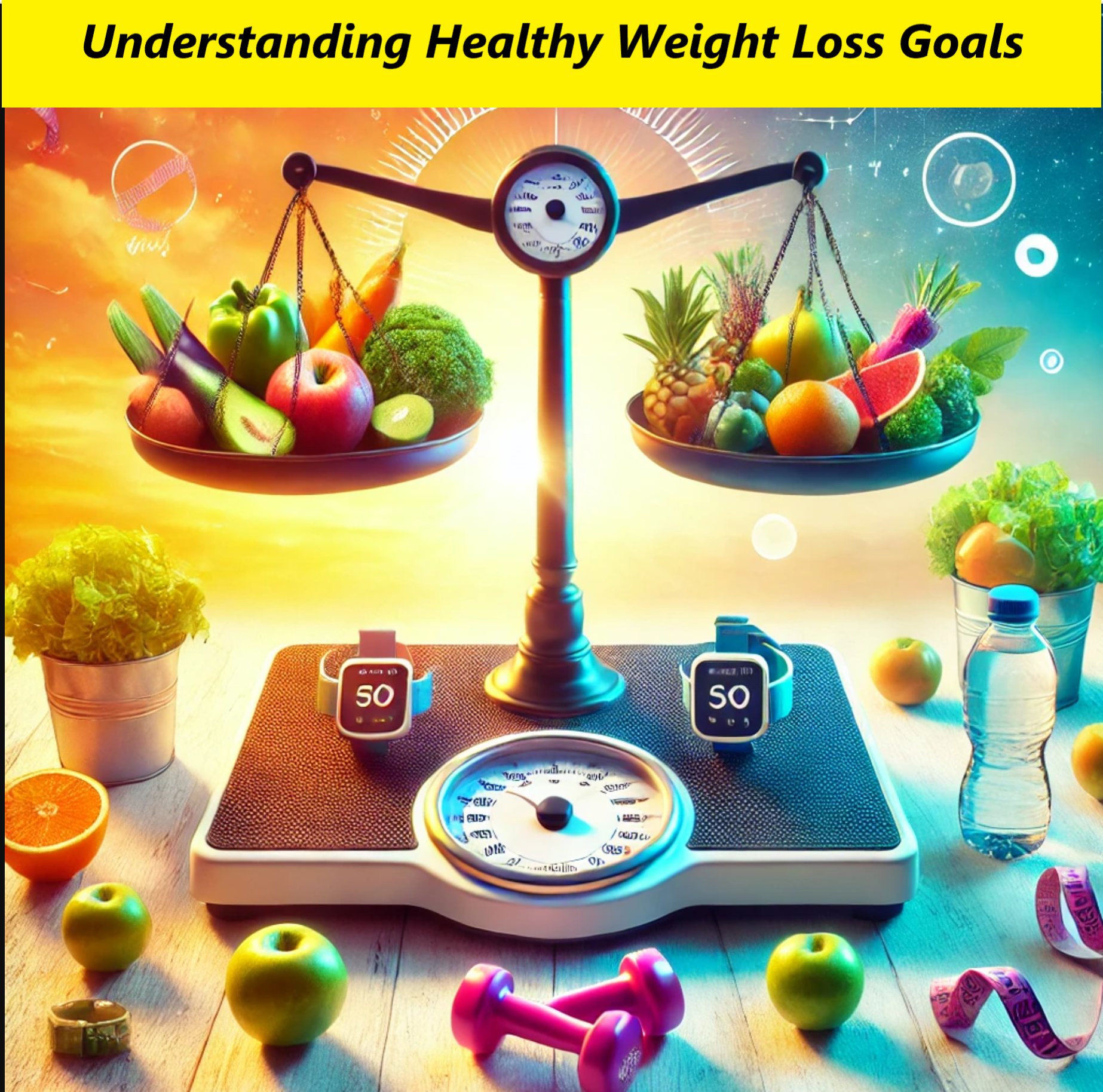Introduction
Proteins are often called the “building blocks of life” for a reason—they are essential for every cell, tissue, and organ in your body. Whether it’s helping to build muscle, repairing tissue, or producing hormones, proteins are vital for countless bodily functions. But how exactly does protein work its magic, and why is it so crucial for our well-being? In this article, we’ll dive deep into the world of proteins, explore their roles in our body, and provide insight into how much protein you actually need.
Table of Contents
What Are Proteins?
Proteins are complex molecules made up of smaller units called amino acids. These amino acids are linked together by peptide bonds, forming long chains that fold into specific three-dimensional structures. This shape is crucial because it determines the protein’s function. Proteins perform a vast array of functions in the body, from supporting cell structure to acting as enzymes, hormones, and antibodies.

There are thousands of different proteins in the body, each with a unique role. The specific sequence of amino acids dictates a protein’s role—whether it’s giving your muscles the strength to move or helping your immune system fight off infections.
Amino Acids: The Foundation of Proteins
Amino acids are the building blocks of proteins. There are 20 different types of amino acids that combine in various sequences to form proteins. Out of these 20, nine are classified as essential amino acids because the body cannot produce them; they must be obtained from the diet. The remaining are non-essential because your body can produce them.

Essential amino acids play critical roles, from promoting muscle growth to supporting brain function. Without them, your body’s ability to maintain protein levels and overall function declines.
Protein Synthesis: How the Body Creates Protein
The process of making protein within your body is called protein synthesis, which involves DNA, RNA, and ribosomes. Protein synthesis happens in two main stages: transcription and translation.
In transcription, the DNA in your cell’s nucleus serves as a template to create messenger RNA (mRNA). The mRNA then leaves the nucleus and attaches to a ribosome, where translation occurs. During translation, the ribosome reads the mRNA code to assemble amino acids in the correct sequence, resulting in a newly formed protein. This process is crucial for cell function and growth.
The Role of Protein in Growth and Repair
Proteins are essential for tissue growth and repair. Every time you work out, tiny tears occur in your muscle fibers. Protein helps repair these tears, making the muscle stronger and bigger over time. That’s why athletes and bodybuilders emphasize protein intake to support muscle development.
Moreover, protein plays a significant role in healing wounds. It’s involved in creating new cells and tissues, which is critical in the recovery process from injuries, cuts, and surgeries.
Protein and Immune Function
Proteins play a critical role in supporting and strengthening the immune system. One of the key components of your immune defense is made of protein: antibodies. Let’s explore how proteins, especially antibodies, function in your immune system and how they help defend the body against infections.

Proteins in the Immune System: Antibodies
Antibodies are specialized proteins produced by your immune system to recognize and neutralize harmful invaders like bacteria, viruses, and other pathogens. Each antibody is designed to target a specific foreign substance, known as an antigen. When an antigen enters the body, the immune system responds by producing antibodies that attach to the antigen and mark it for destruction by other immune cells.
Antibodies play a vital role in:
- Neutralizing Pathogens: By binding to pathogens, antibodies prevent them from infecting healthy cells. This helps stop the spread of infection within the body.
- Tagging Invaders: Once antibodies attach to an antigen, they signal other immune cells to attack and destroy the invader.
- Remembering Threats: Some antibodies remain in your system after an infection is cleared, providing immunity against future infections by the same pathogen.
Without adequate protein, your body may struggle to produce enough antibodies, weakening your immune response and leaving you more vulnerable to infections.
How Protein Helps Defend the Body Against Infections
Protein is essential for the production of not only antibodies but also other components of the immune system, such as white blood cells and cytokines (signaling proteins). These elements work together to detect and eliminate harmful pathogens.
When you’re sick or fighting off an infection, your body’s demand for protein increases. This is because protein is required to build and repair cells, fuel immune responses, and produce new immune cells. If you’re not getting enough protein in your diet, your immune system may not function optimally, making it harder to fend off infections and recover quickly.
Hormones and Enzymes: Proteins as Chemical Messengers
Many of the body’s hormones are made from proteins. Hormones act as messengers, traveling through the bloodstream to target tissues, where they trigger specific biological responses. For example, insulin, a protein hormone, helps regulate blood sugar levels.
Similarly, enzymes are proteins that act as catalysts for chemical reactions. They speed up processes like digestion, metabolism, and energy production. Without enzymes, these reactions would occur too slowly to sustain life.
Protein’s Role in Energy Production
Although protein’s primary function isn’t to provide energy, it can serve as an energy source in times of need. When carbohydrates and fats are in short supply, the body can break down proteins into amino acids, which are then converted into glucose for energy. However, this is not an efficient or ideal use of protein, as it is primarily needed for growth and repair.
Dietary Protein: Sources of Protein in Our Food
Protein can be found in both animal and plant-based foods. Common animal sources include meat, fish, eggs, and dairy products. Plant-based sources include beans, lentils, tofu, quinoa, and nuts.
There is a difference between complete and incomplete proteins. Complete proteins, found mostly in animal products, contain all nine essential amino acids. Incomplete proteins, typically found in plant sources, lack one or more essential amino acids. For those on a plant-based diet, combining different protein sources (like rice and beans) can help ensure you get all the essential amino acids.
How Much Protein Do We Need?
The amount of protein you need varies based on factors like age, gender, activity level, and overall health. On average, it’s recommended that adults consume 0.8 grams of protein per kilogram of body weight. However, athletes, pregnant women, and older adults may require higher amounts.
Signs of protein deficiency include fatigue, muscle weakness, hair loss, and slow recovery from injuries.
Protein and Muscle Building
Protein is crucial for muscle growth. After a workout, your muscles need protein to repair and grow stronger. That’s why consuming protein-rich foods or supplements post-exercise is so common among fitness enthusiasts.

However, there are many myths surrounding protein and muscle building. One common misconception is that you need massive amounts of protein to build muscle, but in reality, consuming more protein than your body can use won’t lead to extra muscle growth—it just gets stored as fat.
The Relationship Between Protein and Weight Management
Protein has earned a reputation as an important nutrient for weight management. Its ability to support weight loss and help regulate appetite makes it a valuable part of any diet plan. Let’s look at how protein can help with weight loss and its role in promoting satiety and metabolism.
Can Protein Help with Weight Loss?
Yes, protein can be an effective tool in weight loss for several reasons:
- Increases Fullness: Protein is more satiating than carbohydrates or fats, meaning it helps you feel full for longer. This can reduce overall calorie intake by curbing hunger and preventing overeating.
- Preserves Lean Muscle: During weight loss, it’s common to lose both fat and muscle. A high-protein diet helps preserve lean muscle mass while promoting fat loss. This is important because maintaining muscle helps keep your metabolism higher, even when you’re cutting calories.
- Thermic Effect of Food: The process of digesting and metabolizing protein requires more energy compared to fats and carbohydrates. This is known as the thermic effect of food. Consuming more protein means your body burns more calories during digestion, which can aid in weight loss.
The Role of Protein in Satiety and Metabolism
Protein has a powerful effect on satiety, or the feeling of fullness after eating. When you consume protein-rich foods, they take longer to break down, helping you stay full for longer periods. This can reduce the urge to snack between meals and help control cravings, making it easier to stick to a calorie-controlled diet.
Moreover, protein supports a healthy metabolism. Muscle tissue, which requires protein for maintenance and growth, is more metabolically active than fat tissue. This means that the more muscle you have, the more calories you burn at rest. By helping to build and preserve muscle, protein boosts your basal metabolic rate (BMR), allowing you to burn more calories even when you’re not exercising.
In summary, protein not only helps you manage your appetite and calorie intake but also plays a key role in supporting your metabolism, making it an essential part of any weight management plan.
Protein in Special Diets: Vegan, Vegetarian, and High-Protein Diets
Protein is an essential nutrient for everyone, but it can be more challenging to manage in certain diets like vegan and vegetarian diets. Meanwhile, high-protein diets have become popular for weight loss and muscle building, but they come with potential risks. Let’s explore the challenges of getting enough protein in plant-based diets, the benefits and risks of high-protein diets, and the importance of balancing protein intake with other nutrients.

Challenges for Vegans and Vegetarians in Getting Enough Protein
For vegans and vegetarians, the biggest challenge is often getting enough complete protein—proteins that contain all nine essential amino acids, which the body cannot produce on its own. Complete proteins are commonly found in animal products like meat, dairy, and eggs, so those who avoid these foods must be more intentional about their protein sources.
Here are some challenges vegans and vegetarians may face:
- Incomplete Proteins: Most plant-based proteins, like beans, lentils, and grains, are incomplete, meaning they lack one or more of the essential amino acids. Vegans need to consume a variety of plant proteins throughout the day to ensure they get all the essential amino acids.
- Lower Protein Density: Plant-based protein sources often contain fewer grams of protein per serving compared to animal-based foods. This means vegans and vegetarians may need to eat larger portions or more frequent meals to meet their protein needs.
- Special Attention to Key Nutrients: In addition to protein, vegan and vegetarian diets can sometimes lack other important nutrients like vitamin B12, iron, and omega-3 fatty acids, which are typically found in animal products. Supplementing or consuming fortified foods may be necessary to maintain overall health.
Tips for Vegans and Vegetarians to Get Enough Protein:
- Combine different plant protein sources (e.g., rice and beans, lentils and quinoa) to ensure a full range of essential amino acids.
- Include high-protein plant foods like tofu, tempeh, seitan, and edamame.
- Consider protein-rich snacks like nuts, seeds, and protein-fortified plant-based products.
High-Protein Diets: Benefits and Risks
High-protein diets, which emphasize protein consumption while reducing carbohydrates or fats, have become popular for weight loss and muscle gain. However, like any dietary approach, they come with both benefits and risks.
Benefits of High-Protein Diets:
- Supports Muscle Growth and Repair: Protein is essential for repairing muscle tissue, making high-protein diets popular among athletes and bodybuilders. Consuming adequate protein post-workout helps muscles recover and grow.
- Promotes Satiety and Weight Loss: Protein-rich foods help you feel fuller for longer, reducing hunger and snacking. Additionally, digesting protein requires more energy, which slightly boosts calorie burn. Many people on high-protein diets find it easier to manage their calorie intake and lose weight.
- Preserves Lean Muscle Mass: During weight loss, high-protein diets can help prevent muscle loss, which is crucial for maintaining metabolism.
Risks of High-Protein Diets:
- Strain on Kidneys: For people with pre-existing kidney issues, a high-protein diet can put additional strain on the kidneys, as they must work harder to filter the byproducts of protein metabolism. While healthy individuals can typically handle increased protein, those with kidney disease need to be cautious.
- Nutrient Imbalance: Many high-protein diets, especially those that limit carbohydrates (like keto), can lead to nutrient deficiencies. These diets may be low in fiber, essential for digestive health, as well as vitamins and minerals found in fruits, vegetables, and whole grains.
- Digestive Issues: A diet too high in protein and low in fiber can cause digestive issues like constipation. To avoid this, it’s important to include fiber-rich foods even in a high-protein plan.
Balancing Protein Intake with Other Nutrients
Regardless of your dietary preferences—whether you’re vegan, vegetarian, or following a high-protein plan—it’s essential to balance your protein intake with other nutrients for overall health and well-being.
Here’s how to achieve balance:
- Include Fiber-Rich Foods: If you’re on a high-protein diet, be sure to eat plenty of fiber from fruits, vegetables, and whole grains to support digestion and maintain heart health.
- Don’t Neglect Healthy Fats: Healthy fats from sources like olive oil, avocados, and nuts are essential for brain function, hormone production, and overall energy levels. Avoid cutting them out in favor of excessive protein.
- Balance Carbohydrates: Carbohydrates are your body’s primary energy source, especially for brain and muscle function. Even if you’re following a high-protein diet, don’t completely eliminate carbs—focus on whole grains and complex carbohydrates that provide sustained energy.
- Variety Is Key: Whether you’re vegan, vegetarian, or following a high-protein diet, aim for variety in your food choices. Eating a range of proteins, carbohydrates, and fats ensures you get all the essential nutrients your body needs to function optimally.
Risks of Excessive Protein Intake
While protein is essential for your body, too much of it can lead to health issues. Let’s break down the potential negative effects of excessive protein intake, the relationship between protein and kidney function, and some common myths about high-protein diets.
Potential Negative Effects of Too Much Protein
Consuming excessive amounts of protein can strain your body in several ways:
- Digestive Issues: Overloading on protein, especially from animal sources, can lead to digestive problems like constipation or diarrhea. This is because high-protein diets often lack fiber, which is crucial for digestive health.
- Dehydration: Breaking down protein requires more water than metabolizing fats or carbohydrates. If you’re consuming large amounts of protein without increasing your water intake, you may become dehydrated. This is particularly true for people following high-protein, low-carb diets like keto.
- Weight Gain: Protein contains calories, and consuming more than your body needs can lead to weight gain. Excess protein, like any macronutrient, is converted into fat and stored if it isn’t used for energy or muscle repair.
- Nutrient Imbalance: A diet overly focused on protein can crowd out other essential nutrients like fiber, healthy fats, and carbohydrates. These are vital for balanced health, supporting everything from heart function to brain health.
Protein and Kidney Function
One of the most frequently discussed concerns regarding excessive protein intake is its impact on kidney function. Here’s what you need to know:
- Kidney Strain: The kidneys are responsible for filtering waste from your blood, and one of the byproducts of protein metabolism is urea. When protein intake is extremely high, the kidneys work harder to eliminate the extra waste. For healthy individuals, this increased workload isn’t usually a problem, but for those with pre-existing kidney conditions, excessive protein can worsen the strain on these organs.
- Risk for People with Kidney Disease: People with kidney disease or impaired kidney function need to be especially cautious with their protein intake. High-protein diets can exacerbate kidney damage by forcing the kidneys to work harder to filter out the byproducts of protein digestion.
It’s worth noting that in healthy individuals, there’s no strong evidence that high-protein diets directly cause kidney disease. However, it’s always a good idea to consult with a healthcare provider to assess your personal risks.
Myths About High-Protein Diets
There are plenty of misconceptions surrounding high-protein diets. Let’s clear up some of the most common myths:
Myth: High-Protein Diets Are Perfectly Safe for Everyone
While healthy individuals can usually handle high-protein diets without issue, people with underlying health conditions, particularly kidney problems, need to be cautious. Additionally, some high-protein diets can be low in other essential nutrients, leading to potential health risks.
Myth: High-Protein Diets Are the Best for Weight Loss
While protein can promote satiety and help with weight loss in the short term, high-protein diets aren’t necessarily the best for long-term weight management. A balanced diet that includes carbohydrates and fats alongside protein is more sustainable and healthier for most people.
Myth: More Protein Equals More Muscle
Many people believe that eating large amounts of protein will automatically build more muscle. The truth is, muscle growth is driven by resistance training, not just protein intake. Once you’ve consumed the protein your body needs, the excess is either stored as fat or excreted, not converted into more muscle.
Frequently Asked Questions
Can you consume too much protein?
Yes, excessive protein intake can lead to kidney strain and other health issues, especially in people with pre-existing conditions.
What happens if you don’t get enough protein?
A lack of protein can lead to muscle wasting, fatigue, hair loss, and a weakened immune system.
Is plant protein as effective as animal protein?
Yes, when combined properly, plant proteins can provide all essential amino acids just like animal proteins.
How does protein affect hair and skin health?
Protein helps maintain healthy hair and skin by supporting cell growth and repair.
Are protein supplements necessary for everyone?
No, most people can get adequate protein from a balanced diet. Supplements are more common for athletes or those with higher protein needs.
Conclusion
Protein truly is the building block of life, playing an indispensable role in everything from muscle growth to immune function. While getting enough protein is crucial for maintaining health, it’s equally important to balance protein intake with other nutrients. By including a variety of protein sources in your diet and paying attention to your body’s needs, you can ensure that you’re fueling your body properly.









